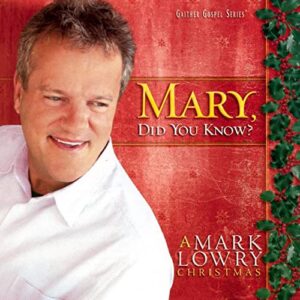2021 has been a busy year for me, but my normal duties are not the only reason for this. In addition to my work for the Ark Encounter and Creation Museum, I have published four books this year—the final three novels in The Truth Chronicles and an additional book in the series titled The Extras, which includes a study guide, brief prequel, concept art, author interview, etc. I’ve also taken several classes, which included travel, listening to lectures, writing papers, etc.
But this post is about something far more adventurous. I had the opportunity to hike at a bunch of state parks, national parks, and national forests during 2021. Many of those locations included waterfalls, so I thought I would share some pictures from those hikes to show off some of the amazing scenery that can be found in the United States.
Other than the local hiking trails I use for training, my first hike was at the end of March. After touring the Marengo Cave in southern Indiana, we hiked the Hemlock Cliffs National Scenic Trail. Located a couple hours from my home, my wife and I visited this short trail with my aunt and cousin in March.

Inside Marengo Cave

Casey standing behind waterfall #1 at Hemlock Cliffs

Behind waterfall #2 at Hemlock Cliffs
A month later, I spoke at a church conference near Duluth, Minnesota and at another conference in southwestern Wisconsin. During those two weeks, I did a fair amount of hiking and visited several state parks, including Rib Mountain SP (WI), Pattison SP (WI), Gooseberry Falls SP (MN), and Tettegouche ST (MN). I also hiked the Timm’s Hill National Trail (WI) and the Chaffee Creek segment of the Ice Age Trail (WI). Unfortunately, they didn’t spell “Tim” or “Chaffey” correctly.

From the bridge over Chaffee Creek on the Ice Age Trail.

The tip of the rock behind me is the very top of Rib Mountain, once thought to be the highest point in Wisconsin.

From the top of Big Manitou Falls in Pattison State Park in NW Wisconsin.

Little Manitou Falls in Pattison State Park

One of two signs I could find to indicate that I was in the “town” of Chaffey, Wisconsin.

Overlooking Lake Superior at Shovel Point, Tettegouche State Park, MN

At the top of High Falls in Tettegouche State Park, MN.

Huge snowflakes were falling by the time we reached Two Step Falls in Tettegouche State Park.

The upper falls of Gooseberry Falls at Gooseberry State Park, MN

The middle and lower falls of Gooseberry Falls

At the start of the 9.3 mile hike on Timm’s Hill Trail to the highest point in Wisconsin.

Esker Creek is about halfway along the Timm’s Hill Trail

Touching the marker indicating the highest point in Wisconsin

A view from the top of the tower on Timm’s Hill

Standing at the exact center of the Northwest Hemisphere (45 degrees N, 90 degrees W). Located NW of Wausau, WI.
In August, I participated in a conference near Mt. St. Helens in Washington. I spoke two times and took part in three hikes near the volcano and one near the Columbia River gorge. We flew out a couple days early and hiked the Tamanawas Falls Trail at Mt. Hood (OR), and the next day I hiked the Skyline Trail at Mt. Rainier NP (WA).

Tamanawas Falls, near Mt. Hood, Oregon. The water drops 110 feet.

At Myrtle Falls near the start of the Skyline Trail on Mt. Rainier.

At the top of the Skyline Trail (1700 ft. higher than our parking spot). The waterfall in the distance on the far left is the Wilson Glacier Falls, and it drops more than 300 feet. This helps to comprehend the size of Mt. Rainier.

The view from Panorama Point near the top of the Skyline Trail. Look closely over my left shoulder and you can see Mt. St. Helens in the distance.

The first of three days hiking around Mt. St. Helens

At Spirit Lake with the volcano in the background. The thousands of floating logs behind me have been on the lake for over 41 years.

Technically, it is a waterfall. This was at a tiny stream flowing into Spirit Lake.

The view from Windy Ridge, NE of the volcano.

On the second day of hikes, we walked through areas where plant and animal life has been recovering since the eruption. This is from the Hummocks Trail on the NW side of the volcano.

On the third day of hiking near the volcano, I went all the way down into the “Little Grand Canyon.” Everything in this picture is younger than me. The canyon was cut in a day through sediment that was laid down during three separate events, beginning with the eruption in 1980.

The fourth day of hikes for the conference began at Latourell Falls in Oregon. The water plunges 224 feet.

Next, we visited a spectacular overlook of the Columbia River Gorge before spending the day driving to several sites with geologic significance throughout the gorge.
After the conference, Casey and I spent a week hiking in Oregon and California. In Oregon we hiked at Blue Pool (Willamette NF, OR), Tumalo Falls (OR), and Crater Lake NP (OR). In addition to the extremely beautiful scenery, Blue Pool and Crater Lake offered some unique opportunities. The water temperature at Blue Pool is always about 37 degrees, so I just had to jump in. And the Cleetwood Cove Trail at Crater Lake ends at a spot where you can do a bit of cliff jumping into the lake from about 25 feet up into water that is about 58 degrees. Both of those jumps were amazing.

The 2.25 mile hike to Blue Pool provides some outstanding views of the McKenzie River and some large Douglas Fir trees.

Blue Pool is amazing. I want to go back.

It looks quite shallow because the water is so clear, but Blue Pool is more than 30 feet deep.
Jumping into 38 degree water at Blue Pool was extremely invigorating.

Tumalo Falls near Bend, Oregon.

Double Falls is located about a mile up the trail from Tumalo Falls.

On the 700 ft. descent to Cleetwood Cove for some cliff jumping into Crater Lake.
My second jump at Crater Lake was a blast. My first jump was fun, too, but it took about 30–45 seconds of convincing myself that it wasn’t going to hurt too much.
If you know me, you’ll know that no trip to California is complete without visiting the Redwoods. We spent three days at Jedediah Smith Redwoods SP, Prairie Creek Redwoods SP, Humboldt Redwoods SP, and the Redwood National and State Parks.

Where’s the tall guy? This is one of my favorite pics because it shows how tiny I am compared to the redwoods. This was from the Boy Scout Tree Trail in the Jedediah Smith SP. This six-mile out-and-back hike is my favorite trail in the redwoods.

On a sky bridge at Trees of Mystery in Klamath, CA.

On the Lady Bird Johnson Grove Trail in the Redwood National and State Parks. While it’s a beautiful grove, this was the least impressive of all the hikes we did in the redwoods.

Walking on a fallen giant gives some perspective on the size of the redwoods

Walking in Fern Canyon (Prairie Creek Redwoods SP). Part of Jurassic Park 2 was filmed here — where the little compsagnathus get their revenge
While traveling to North Carolina in October, I took a detour to visit our newest national park, the New River Gorge NP in West Virginia. I had enough time to hike the Endless Wall Trail. I also completed that Bull City Half Marathon (Durham, NC), visited the Museum of the Bible (Washington, DC), and had great seats to watch the New Zealand All Blacks dominate the US Eagles 104-14 in rugby.

View of the New River Gorge from the Endless Wall Trail

At the start of the Bull City half marathon

The entrance to the Museum of the Bible

Front row seats for the All Blacks 104-14 victory. I also caught one of the conversion kicks in the first half.
As you can see, it was a year filled with adventure for me. Hopefully, 2022 will include some more amazing hikes and sights.

